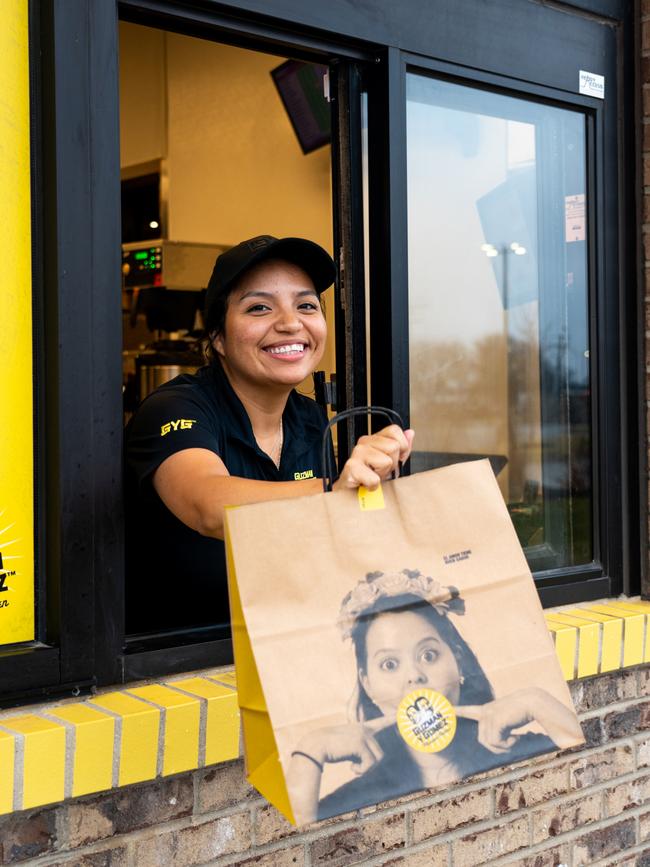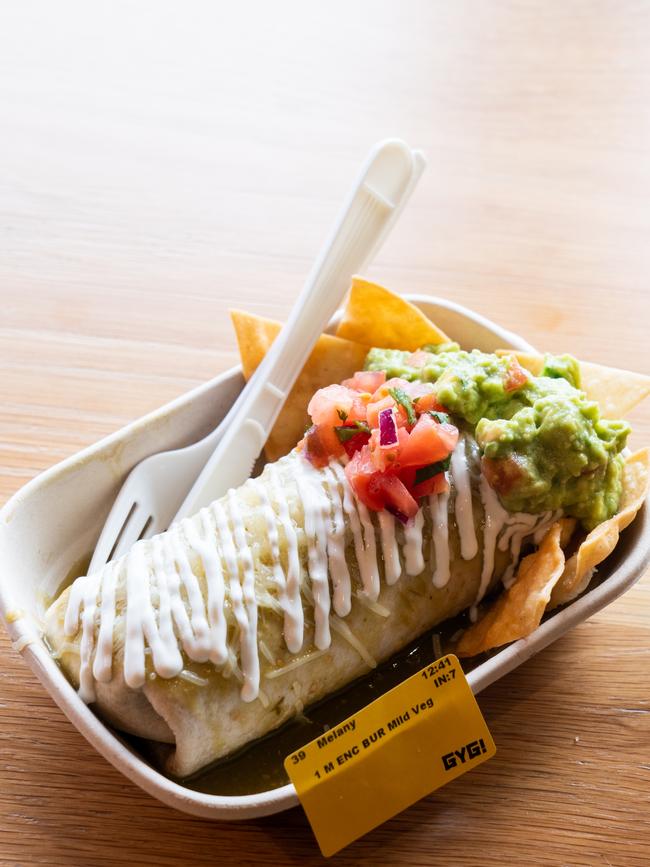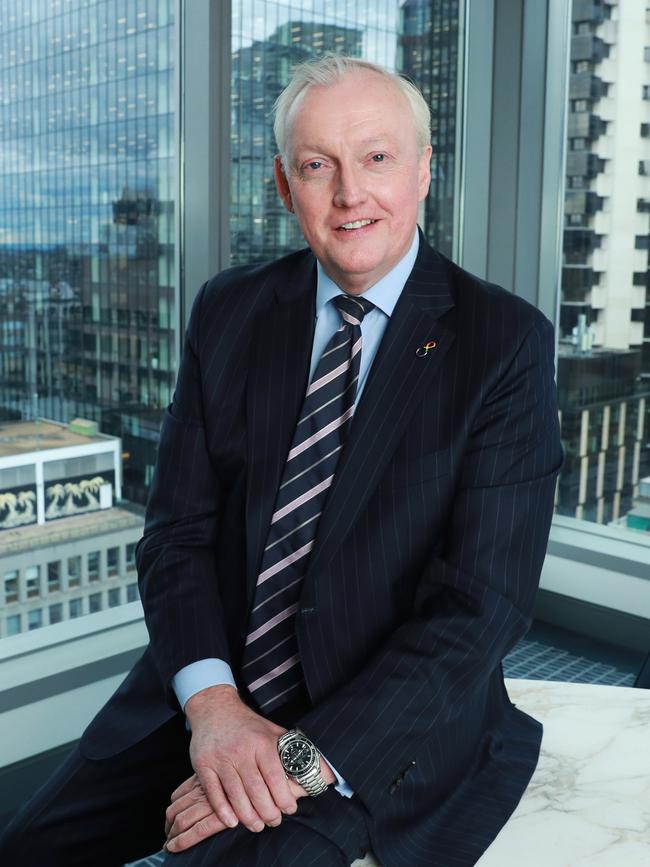
For now, Guzman continues to deliver breakneck growth in Australia as it takes share from bigger fast-food rivals including McDonalds, KFC and even Domino’s on its promise of fresh, clean fast food infused with a spicy Mexican backstory.
The chain has just turned 18 and reckons there is plenty of room to grow. Guzman is again being watched by bankers as a candidate for a stockmarket listing or a private equity sale. It previously eyed an initial public offering two years ago, but its backers opted to keep it off market.

With the IPO market in Australia still largely frozen, the opportunity isn’t there yet. But Guzman’s co-CEOs are putting in the groundwork. Internally they are eyeing the very end of this calendar year or early next year.
At current growth rates Guzman is on track to break the $1bn in revenue this financial year and has now passed more than 200 restaurants, including 183 in Australia. The balance is split between Singapore, Japan and there are four across greater Chicago. It’s impressive growth from a single store concept out of Sydney’s inner west.
Even with inflation and higher interest rates biting, co-founder and co-CEO Steven Marks says Guzman is defying the trend for people to eat more at home. He says Guzman is actually a beneficiary given it plays in the deep value space as well as the trend to better eating.
“It is so much cheaper to eat at GYG than cooking at home,” Marks tells The Australian. “Obviously it has been a tough macro-environment but GYG is almost like a recession-proof business.”
The chain is still generating bottom line losses as it remains in its growth stage, including a $3.9m loss in the December half. Although with lucrative fees from franchise partners and moving up the scale chain it is cash flow positive. On a pre-tax earnings line it is generating profits – $17.2m in the December half, up from $9m for the same period a year earlier.

Global revenue of $470.8m for the December half was up more 30 per cent helped by addition of 13 new restaurants in Australia and 16 globally, including those opened by franchisees.
Australian comparative store growth of 11 per cent comes in the face of households cutting back on spending given higher interest rates and the inflation hit. The switch to drive-through in recent years in Australia’s suburbs is also proving a boon for Guzman.
The average drive-through store pulls in more than $105,000 a week. That compares with so-called strip outlets based in shopping malls or the inner city, that on average generate $86,000 a week. The higher turnover helps to lower unit costs.
Marks has a “whiteboard” ambition with the aim of opening 1000 restaurants over time in Australia. This includes the aim of as many as 40 a year over the long-term split between franchise and corporate stores. However, he acknowledges the key to this growth comes down to securing the right sites.
Even so, that would see GYG in the big league of fast food – McDonald’s has more than 1000 stores in Australia, KFC has more than 780 and Domino’s has 734.
Fund manager Magellan under former boss Hamish Douglass was an early backer of the chain, although it has since on sold its stake to its part-owned investment bank Barrenjoey. Other backers include Athletic Ventures and the co-founder and chief executive Steven Marks. Guzman is chaired by Guy Russo, the former McDonald’s Australia boss and former chief of Wesfarmers-owned Kmart.

The US remains in early development and while the market represents vast opportunity it’s going to be a big challenge to get right. Guzman so far has four restaurants across greater Chicago, with four more planned this year. So far comparative sales growth is running at 15 per cent, although sustaining that growth over time remains critical.
As the city with the global headquarters of McDonald’s, Chicago has a reputation as one of the fiercest restaurant markets in the world.
The US performance and potential growth of the market will be the key to how prospective investors are likely to value the business ahead of any stockmarket listing. The best listed comparison for Guzman is Collins Foods, which operates more than 344 KFC restaurants across Australia and Europe. Collins Food currently trades at 12-times forward earnings and has a market capitalisation of $1.3bn. Guzman would be much smaller, although there’s more potential for growth for the new brand.
Marks, originally from New York, knows the scale of the task ahead in trying to prove the concept. But his view is if he can make it work in Chicago’s suburbs he will be able to make it work in nearly any city in the US.
“We have four restaurants there and there’s going to be eight by the end of this calendar year. We have one restaurant that’s doing double-digit growth which is obviously a great sign and we have an amazing team. We’re just going to be relentless on food quality and restaurant economics”.
“We are measured and completely focused and making sure that it works in the US.”
On a potential listing co-CEO Hilton Brett says: “For us, obviously, there’s always been an aspiration to IPO this business at a certain point in time, and when the timing is right and market conditions are right we will IPO this business”. However Brett won’t be drawn on specific timing.
“We’re lucky we have very supportive investors that are here for the long term. We don’t make any short-term decisions, and we want to build the best and biggest restaurant company in the world,” he says.
Perpetual’s big bet sours
It’s a sure sign of the pressure a CEO is facing when analysts use an earnings briefing to ask about succession planning.
Perpetual boss Rob Adams is the hot seat in more ways than one with his all-or-nothing buyout of funds management rival Pendal already starting to misfire. Investors too are impatient for the results of a review that could see the sale or spin-off of Perpetual’s well-regarded corporate trust and financial advice business.
Perpetual last January finalised the $2.5bn buyout of Pendal, a move that pushed funds under management to more than $200bn.

However, since the deal Perpetual’s shares have barely budged while its funds under management, a key driver of earnings, have started to go backwards – even in the face of a global equities markets nudging record levels. And last December the blue-blood Perpetual went from hunter to the hunted, with bigger funds house Washington H. Soul Pattinson lobbing a $27 a share offer, largely dependent on a spin out of the non-funds management operations.
After Wednesday posting an uninspiring December half profit of $34.5m, Perpetual was last trading at $24.36 a share.
Speaking to The Australian, Adams acknowledges the frustration around the time being taken for the strategic review, which remains the key to unlocking the inherent value around Perpetual. He is not putting a timeline on its release, but notes the next quarterly funds update is in April and he would like to have an update by then. He says there’s been no talks with Washington H. Soul Pattinson and no other approaches.
He says Perpetual, a sprawling, multibrand funds business is now seen as a financial services conglomerate.
“One of the challenges we therefore face is there’s … effectively a conglomerate discount associated with it. What we’re exploring is whether or not we can add extra value to shareholders by unlocking that discount.”
There’s a lot for Perpetual to digest as it absorbs Pendal – the global funds manager spun out of Westpac’s BT Financial business. And it was a big bet by Adams. The buyout pushed up debt on Perpetual’s balance sheet from $261m to $713m. To show how finely balanced the share and cash buyout was after the deal Pendal shareholders ended up with nearly 49 per cent of the merged group.
Adams says it is early days in the merger and points to a cost savings target of $80m by January next year running well ahead of plan. But this was overshadowed by some $4.3bn in fund outflows mostly in Pendal’s global funds business JO Hambro. It was the ultra-concentrated strategy hit hardest.
“The first 12 months, to be frank, has not been the perfect 12 months for us by any stretch, we have suffered from some outflows in particular strategies from the acquired business. That’s always disappointing.”
Adams said with asset management the proof of success needs to be measured over time, with market moves, client preferences and the outlook for interest rates.
“We’ve just finished the first quarter. You know, it’s not full time. We’ve got three quarters to play. And I think it’s really after those longer, longer periods of time that you ultimately can judge the success or otherwise,” Adams says.
However, unless Adams can quickly find value in the sum of Perpetual’s parts, the hunt will be on again.
johnstone@theaustralian.com.au





Australia’s homegrown fast-food chain Guzman y Gomez has ambitions bigger than one of its el grande enchiladas. However, it will need to prove itself in Chicago – one of the toughest foodie markets in the world – before it is ready for a stockmarket listing.